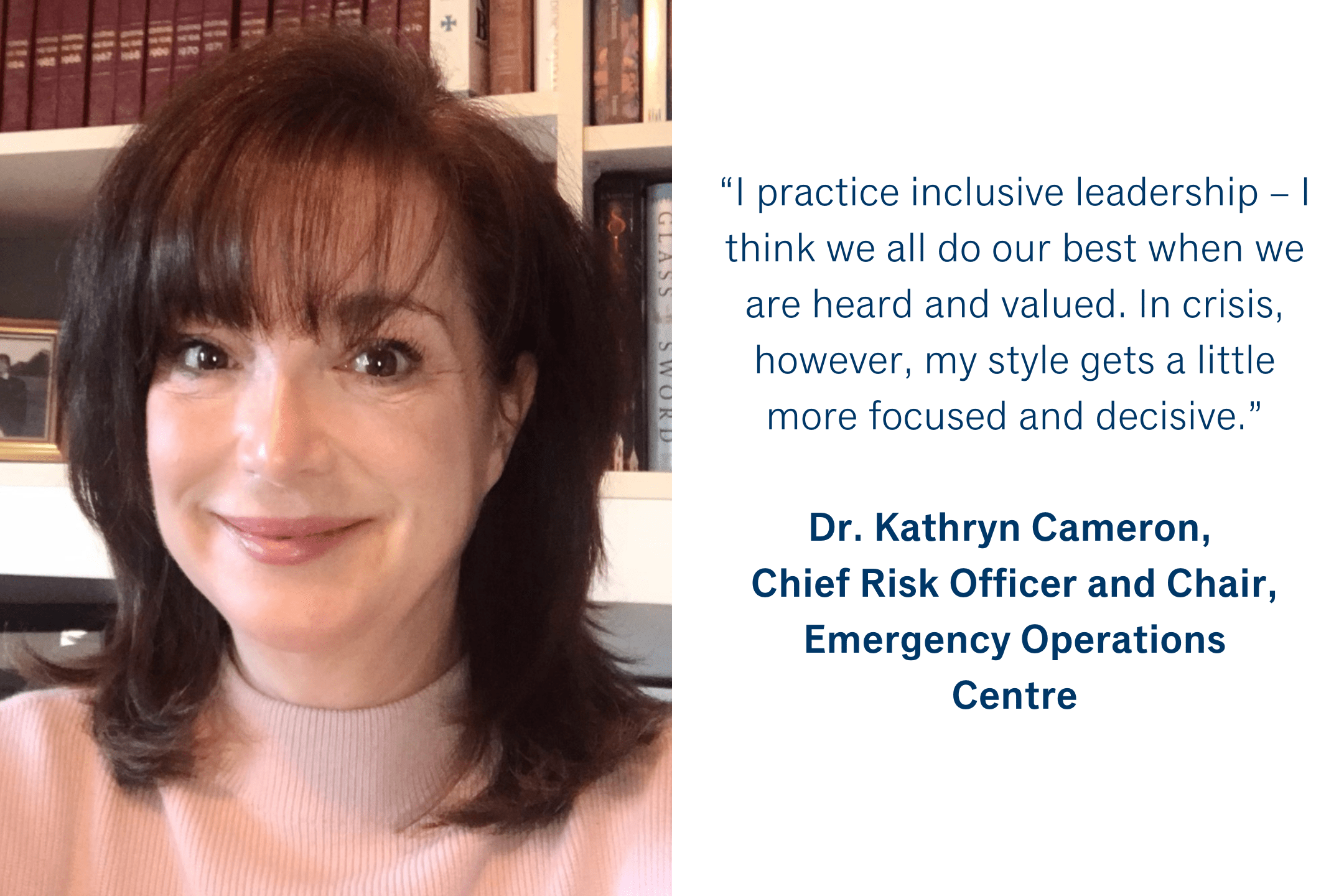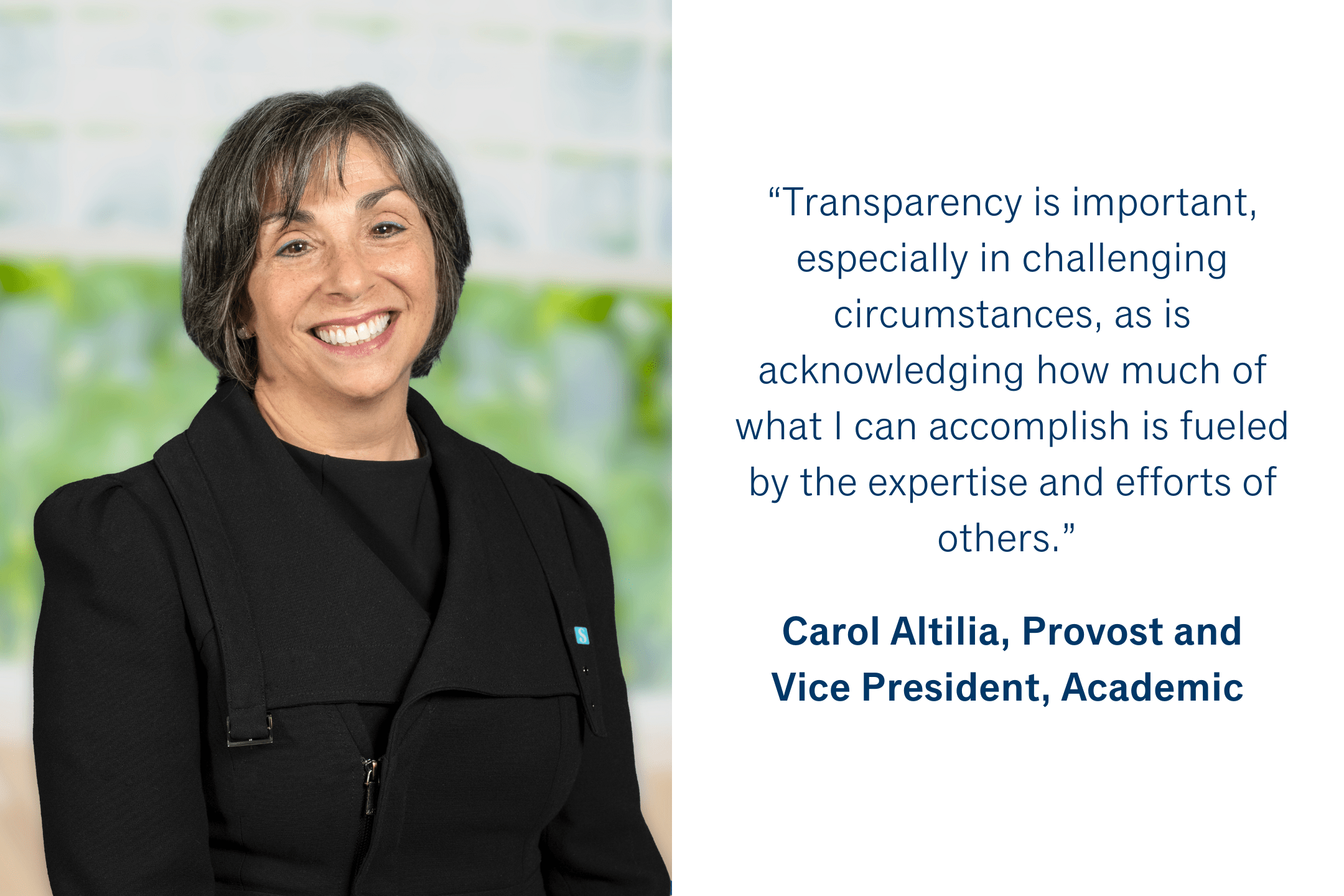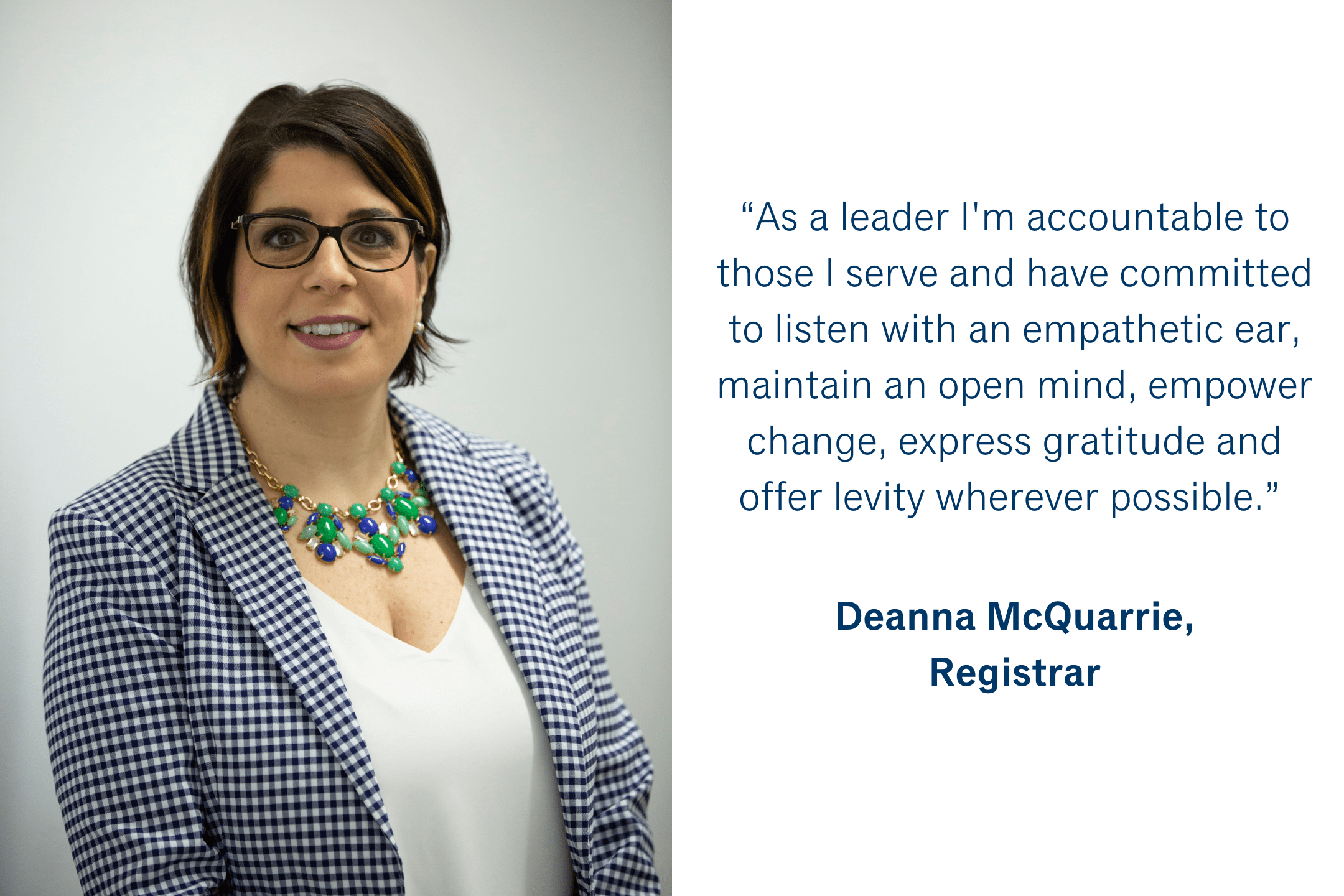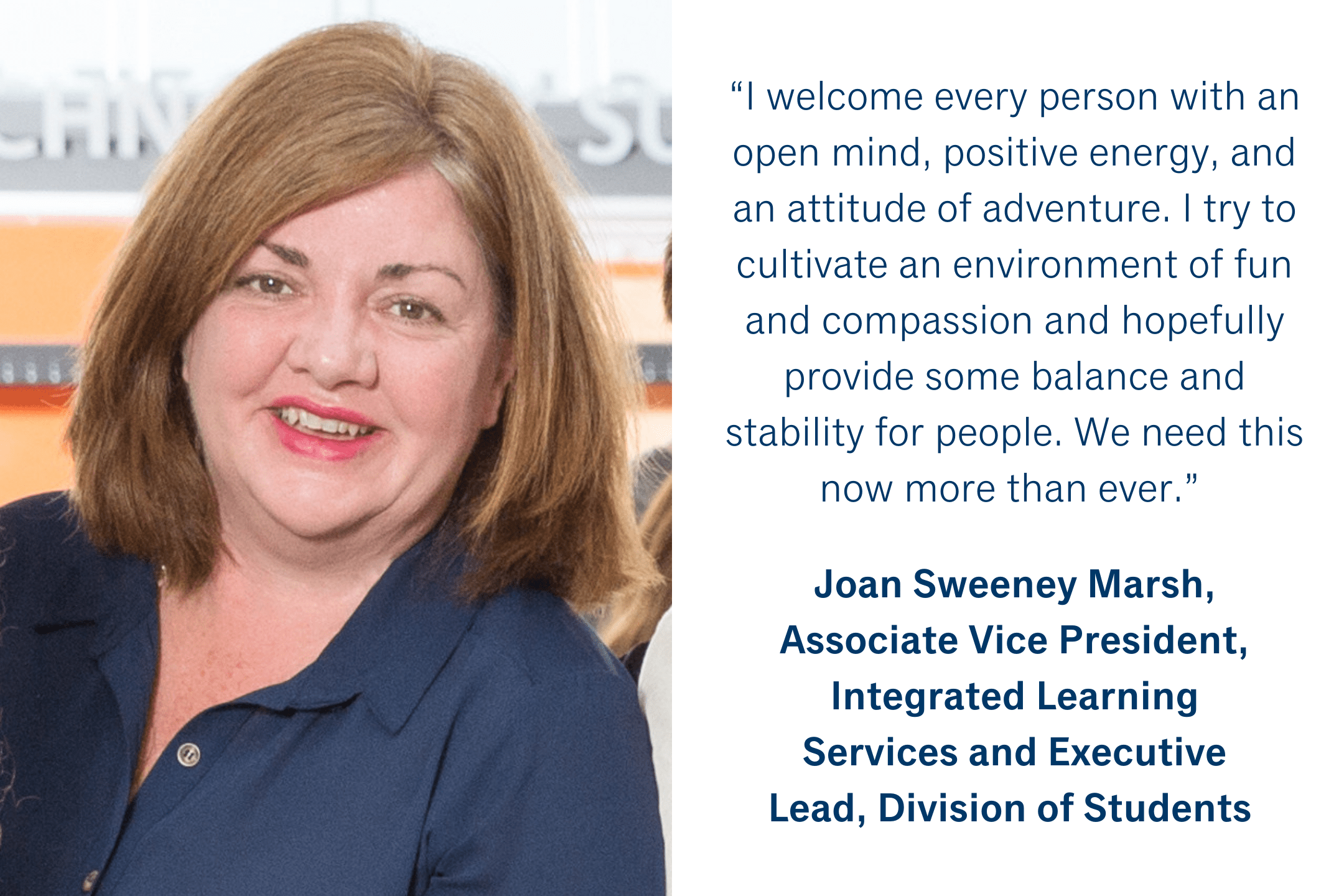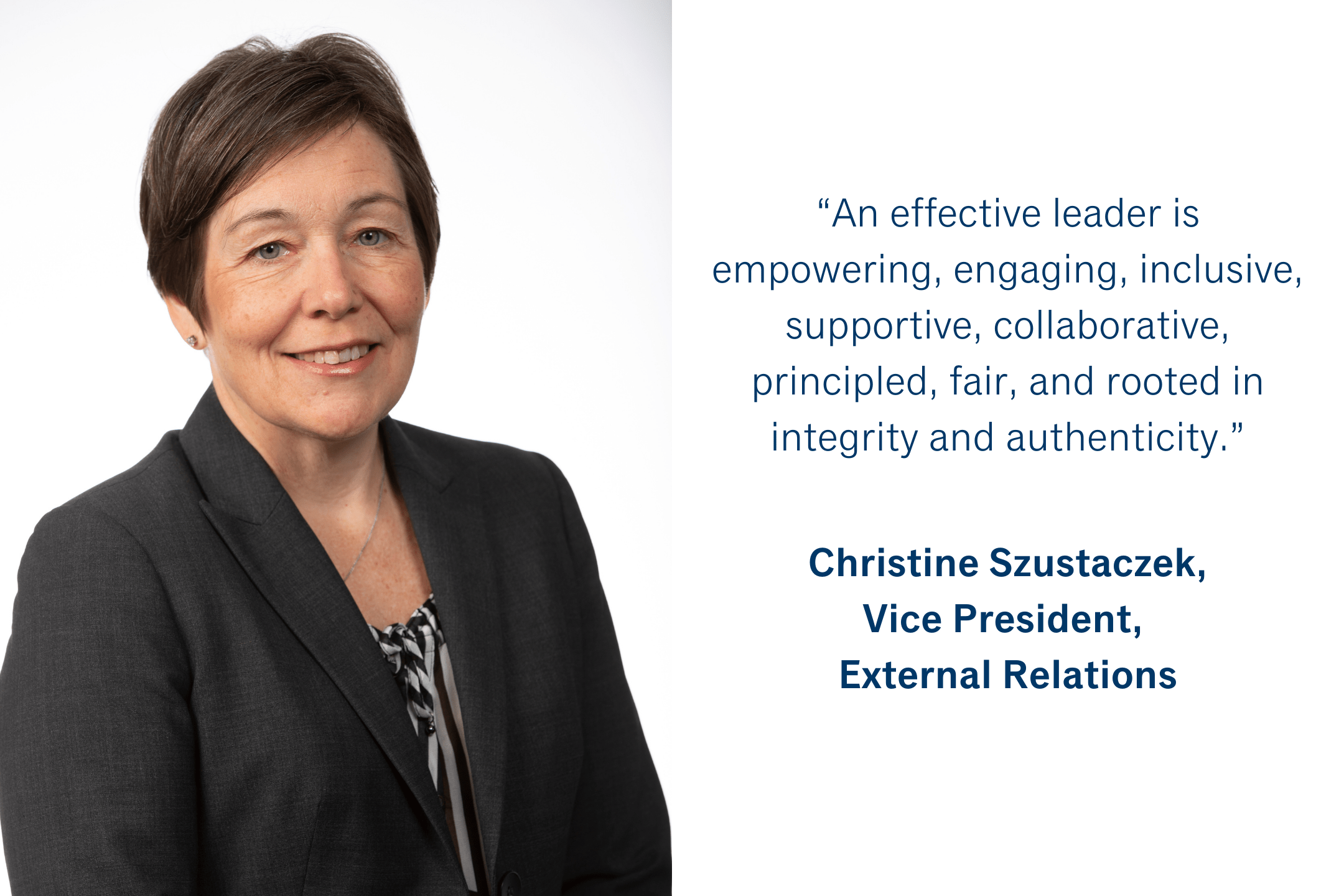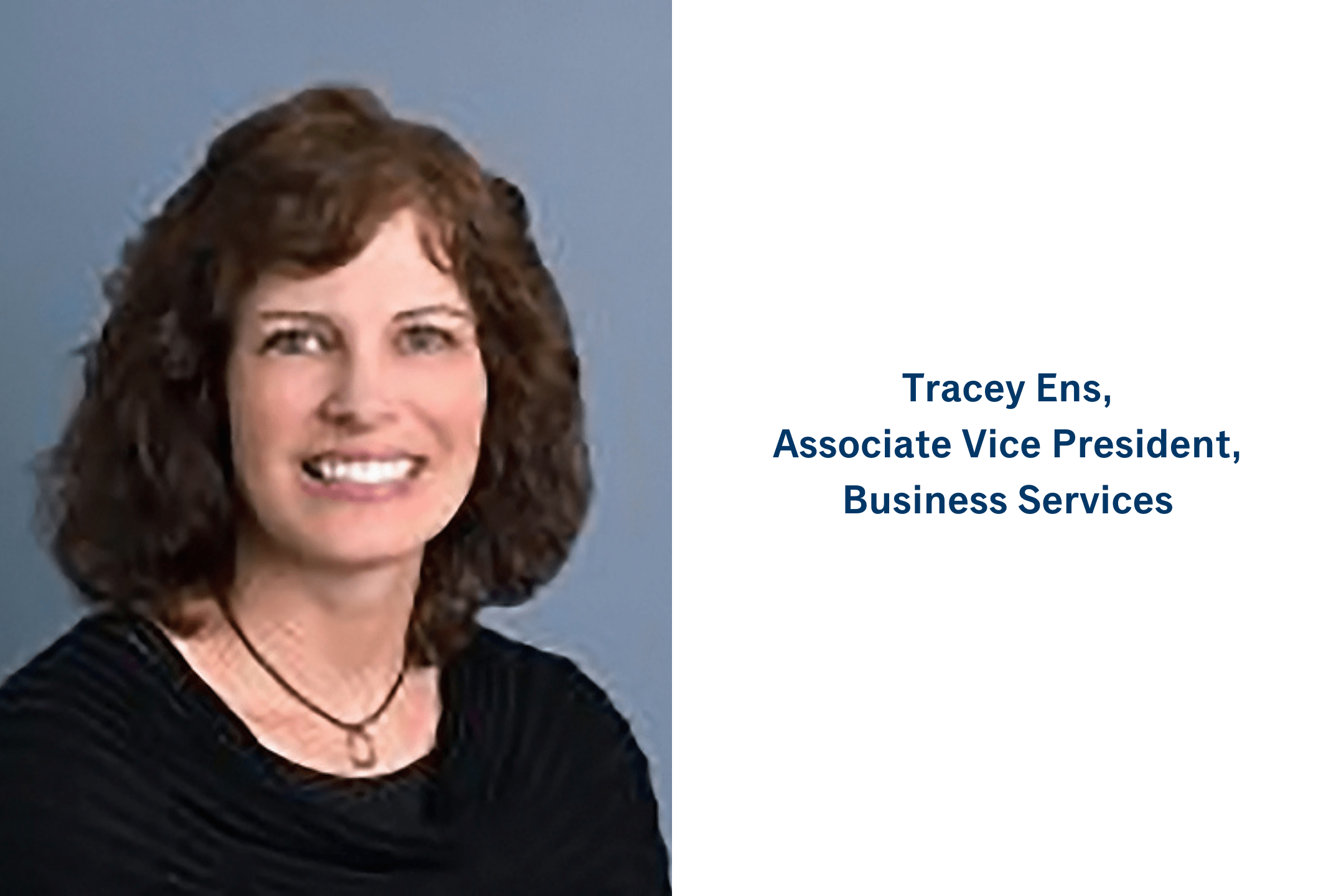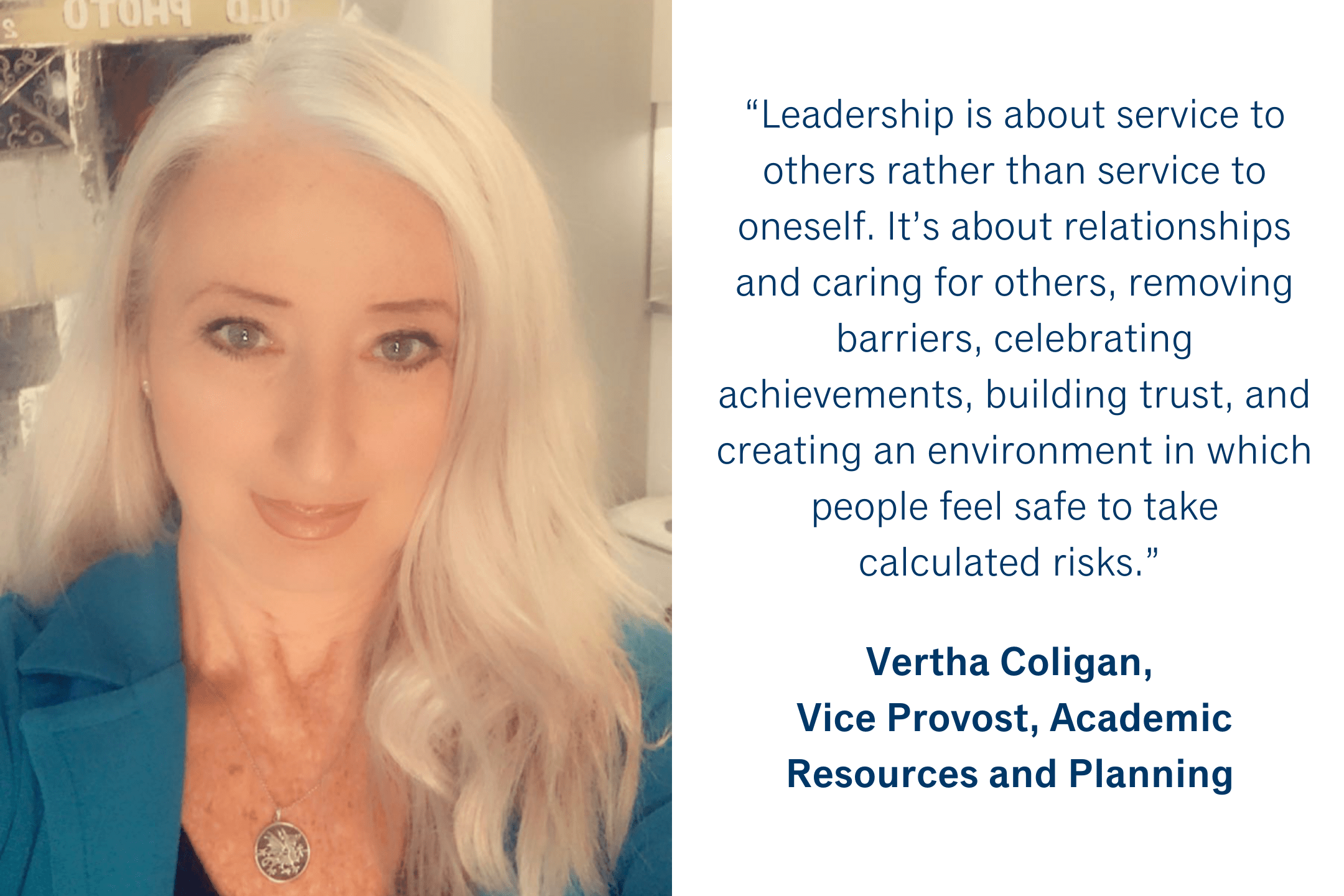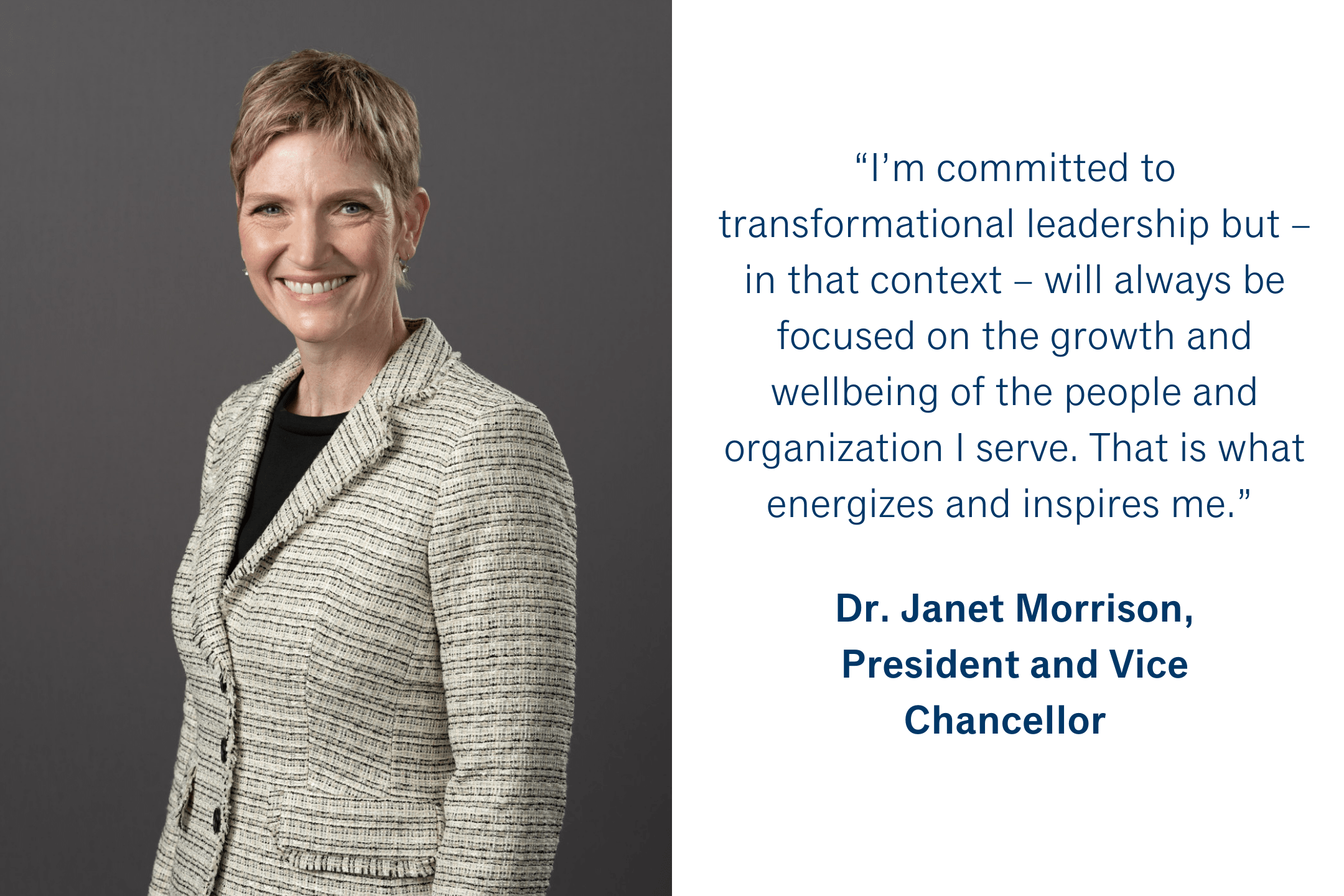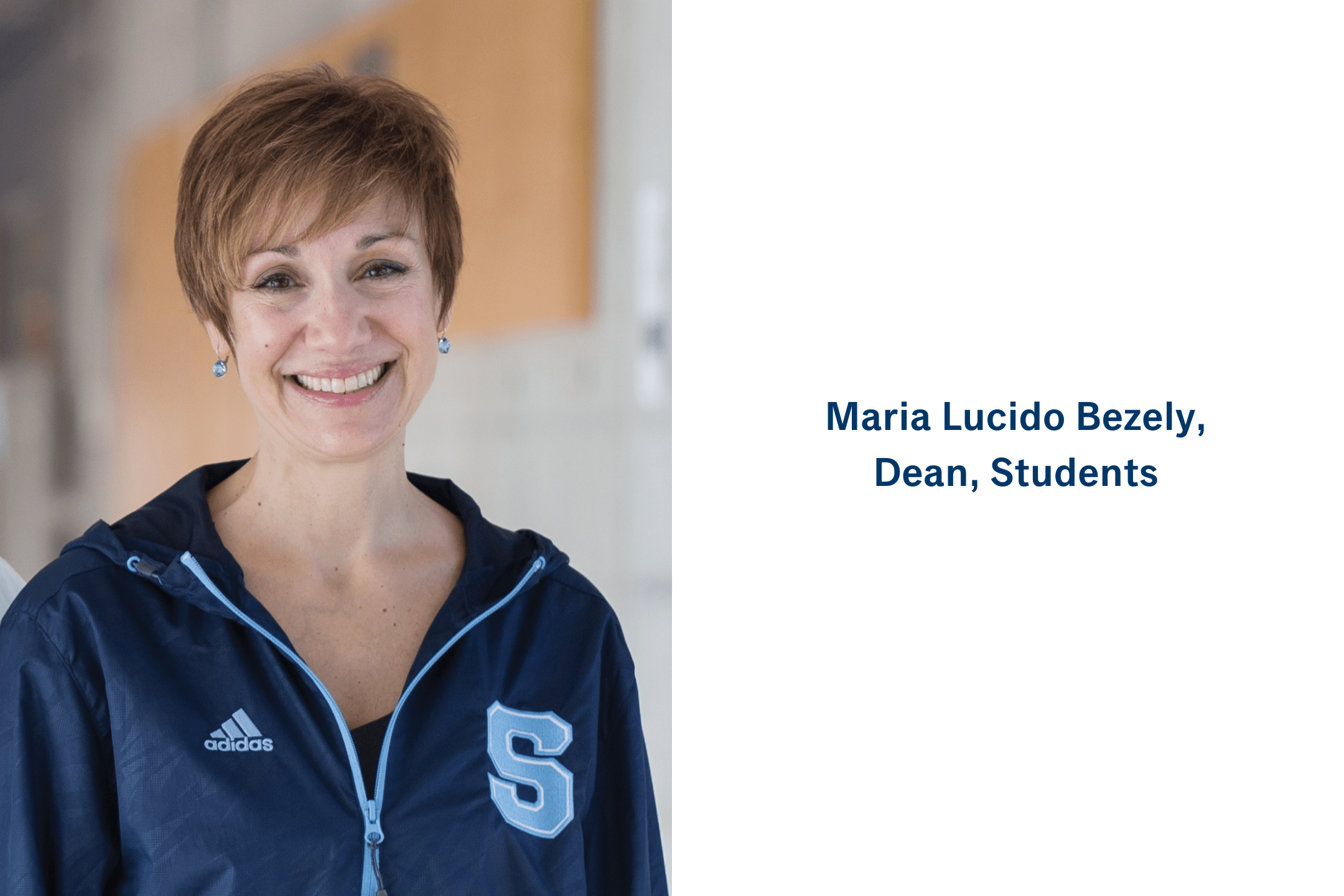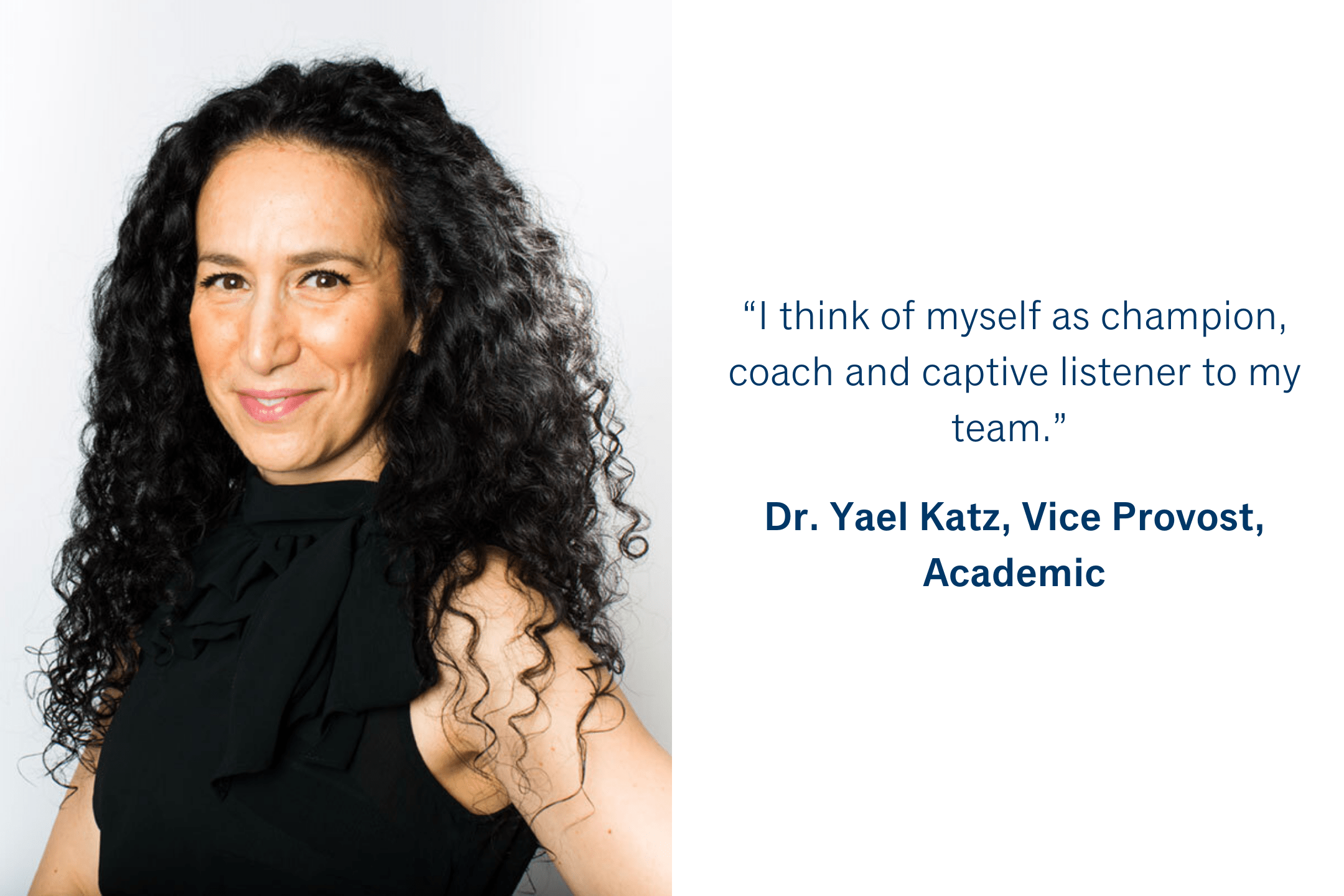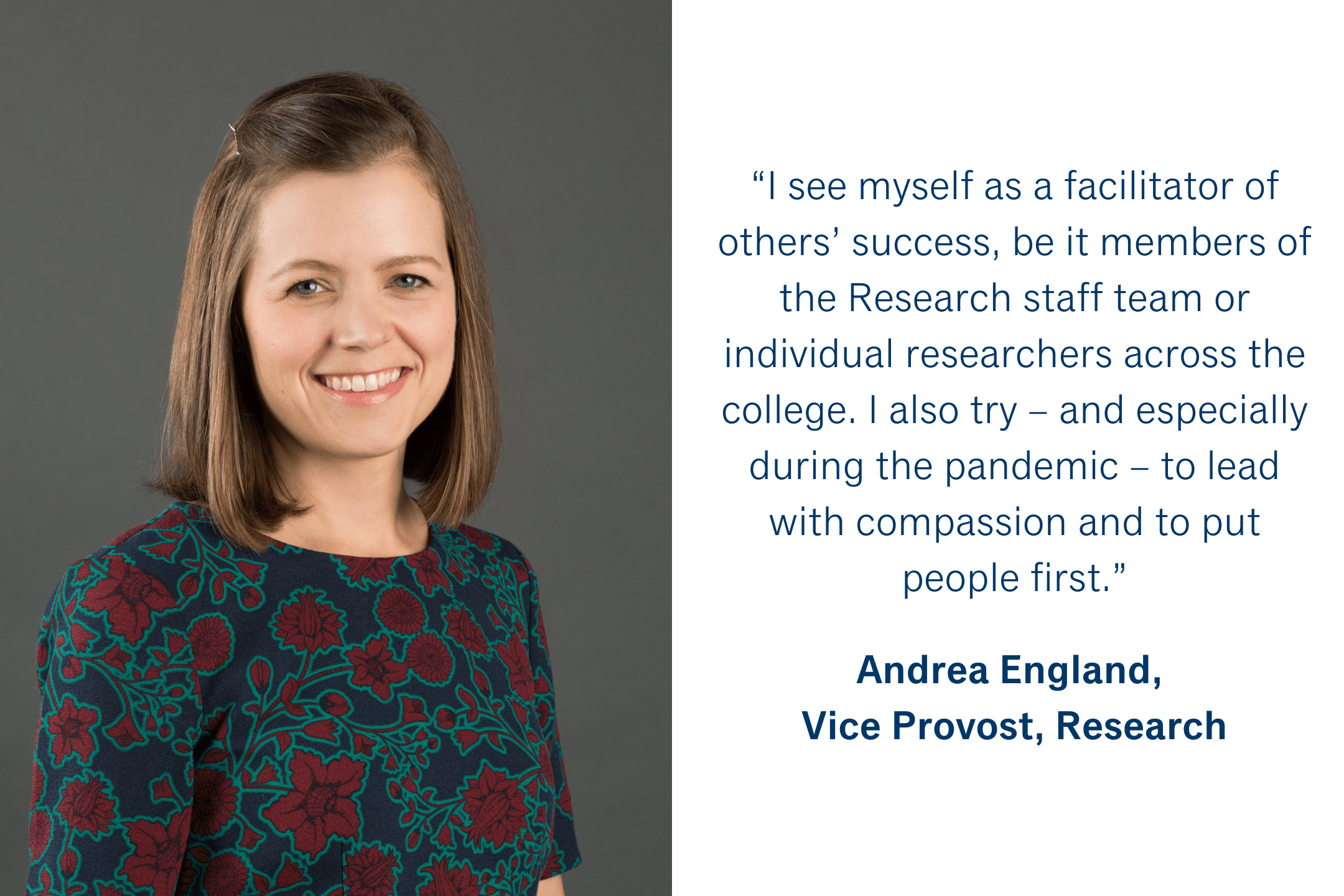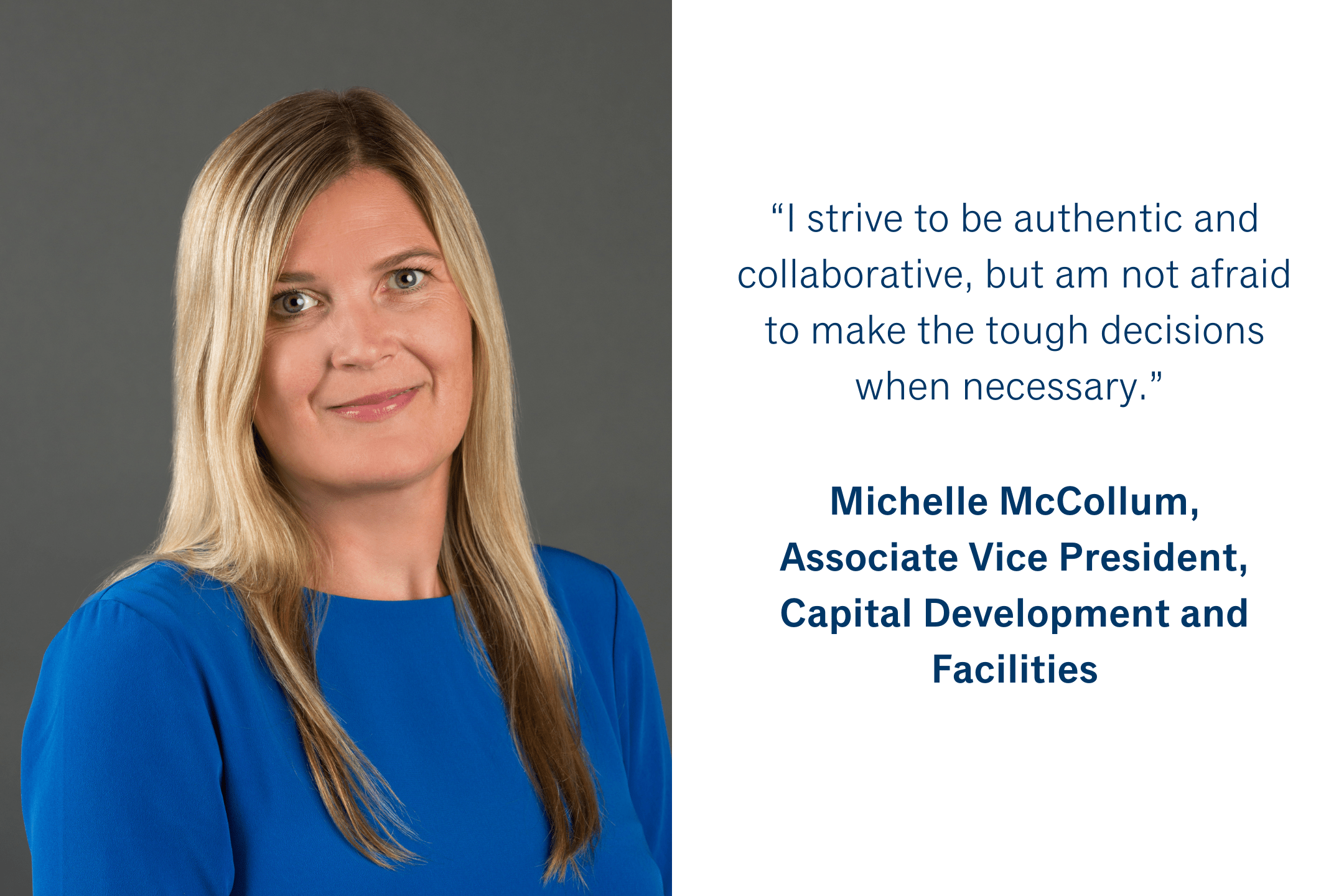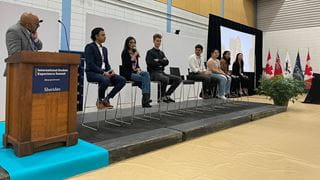How Sheridan’s women leaders guided the College through a pandemic
 by Susan Atkinson – Mar 8, 2021
by Susan Atkinson – Mar 8, 2021 When the COVID-19 pandemic was officially declared by the World Health Organization in March 2020, Sheridan’s leaders were forced to quickly pivot to enable students to complete their winter semester, while also preparing for an uncertain future as the extent and longevity of the pandemic were unknown. A year later, normalcy is yet to fully return, but the one-year anniversary of the pandemic’s onset presents an opportunity to reflect on how Sheridan’s predominantly female leadership team effectively responded to a global crisis.
An article published in the Harvard Business Review in December, 2020 points to research that shows how women are better leaders during a crisis, because they’re able to pivot and learn new skills, emphasize employee development even when times are tough, display honesty and integrity, and are sensitive and understanding of the stress, anxiety and frustration that people are feeling. “Our analysis shows that these are traits that are more often being displayed by women [during the pandemic]”.
It’s impacting everything we do, and upending how we do it. For me, the keys to addressing these challenges are empathy, flexibility and communication.” - Dr. Janet Morrison
At Sheridan, there are 197 leadership positions, including executives, directors and managers. Of these, 65.5% are held by women. By contrast, while not an apples to apples comparison, a recent Globe and Mail report found that female executive leaders at Canadian universities comprise 41% of the total positions, while women comprise just 24% of university presidents.
To better understand the influence of female leaders on the college’s pandemic response, we reached out to some key individuals who were intrinsic to guiding Sheridan through the past year.
Clearly, there was great uncertainty and challenges to be faced. Vertha Coligan, then Dean of the Faculty of Applied Science and Technology, says, “The biggest one was navigating the unknown and finding ways to ensure my team felt supported, not only by me and the larger organization but by each other.” Sheridan’s leader, President and Vice Chancellor Janet Morrison, invokes the theory of VUCA (volatility, uncertainty, complexity and ambiguity) to describe the overall effect – “It’s impacting everything we do, and upending how we do it. For me, the keys to addressing these challenges are empathy, flexibility and communication.”
Our students are always at the forefront and have been the focus of our response. “By far the most difficult aspect of the pandemic has been hearing about the difficulties our students are facing, and accepting our limits to address the broader implications, such as the impact on their families,” says Carol Altilia, then Vice President of Student Engagement and Enrolment Management. “Our team has been exceptional in mobilizing around student needs, and this remains what motivates them every day.”
One of the hardest hit areas of the college from a financial perspective was Ancillary Services, which relies on revenues from parking, residence fees, and other services to sustain operations – all of which took a substantial hit due to the closure of campuses. “All of my areas were able to find ways to address these challenges, including job sharing, cost reductions, and new initiatives for revenue generation,” says Tracey Ens, AVP. “I’m immensely proud of my team for their resilience, creative problem-solving and can-do attitude.”
I think we’ve all had our eyes opened to the fact that despite the postsecondary sector’s reputation for being slow moving, we were incredibly nimble in our response." - Andrea England
Interestingly, the pandemic revealed some valuable insight when it comes to adult learners. “Continuing and Professional Studies (CAPS) has many loyal clients who have been with us for years – they come for learning, but also for networking and the opportunity to socialize,” says Nazlin Hirji, Director of CAPS. It was unclear how the shift to remote delivery would be received. “Rather than offer asynchronous online courses, we provided them live, at a scheduled day and time. The feedback was and continues to be incredibly positive – to the point that we routinely receive requests to continue this modality ‘after the pandemic’.”
The imperative to switch 3,500 employees to remote working was a dramatic move for an institution which bases its success on collegiality and interpersonal relationships. For Christine Szustaczek, then Chief Communications Officer, technology has been a vital tool in keeping her team connected and engaged. “We use Microsoft Teams and Slack to stay in constant touch with each other, share updates and focus on our shared mission.” Michelle McCollum, Associate Vice President, Capital Development and Facilities, holds regular, remote team meetings, as well as one-on-one meetings with team members. “We also have an informal drop-in lunch meeting every week and find ways to recognize and show our appreciation to our essential workers, individually and collectively." Taking the time to recognize employees’ contributions was echoed as important by all leaders. “We cared to notice small wins, to celebrate our successes even when they seemed tangential, to help one another with unexpected twists and turns in what seemed like a surreal environment, and to look forward,” says Dr. Yael Katz, Vice Provost.
As with every organization affected by the pandemic, there have been lessons learned for our leaders throughout this period. “I think we’ve all had our eyes opened to the fact that despite the postsecondary sector’s reputation for being slow moving, we were incredibly nimble in our response,” says Andrea England, Vice Provost, Research. “Keep communicating repeatedly, in a wide range of channels – the further we’re apart, the more that communication plays a critical role in keeping us connected,” says Szustaczek.
Kathryn Cameron, Chief Risk Officer, has played a pivotal role throughout the pandemic as Chair of the Emergency Operations Centre. “I’ve always been careful in a crisis to not overreact and make people unnecessarily anxious. I rely on facts before I make a plan, but there was incredible uncertainty in the first few months – remember the debate around the efficacy of masks?” she says. “I’ve learned that in a crisis like this mistakes are going to happen. The most important thing is to address them and then move on.”
I hear from students all the time about how their faculty have been diligent, creative and earnest in their efforts to accommodate unique needs to ensure academic success.” - Carol Altilia
In reflecting on how well the college fared in its response, our leaders’ appraisals were uniformly positive. “I think we’ve done an extraordinary job in responding quickly and effectively while managing multiple, competing priorities throughout,” says Altilia. “I hear from students all the time about how their faculty have been diligent, creative and earnest in their efforts to accommodate unique needs to ensure academic success.”
The successful pivot to remote course delivery was also cited as cause for pride: “We transitioned thousands of courses to remote delivery and created innovative solutions to previously unimaginable dilemmas – like how to conduct virtual internships or engage in hands-on experiential learning from afar,” says Katz. As Szustaczek notes, effective communications have been key to the pandemic response – “77% of employees reported satisfaction with our communication effort, and 70% reported satisfaction in the spring with the way the crisis was managed, rising to 75% in the fall.”
Sheridan’s care and concern for its students remained at the forefront, says Maria Lucido Bezely, Dean of Students: “With student learning and well-being as our priority, we moved quickly from reacting and crisis intervention, to critical and thoughtful response, to evidence-based planning that considered the “whole person”.” For the President and Vice Chancellor, Sheridan’s pandemic response reinforces the principles outlined in Sheridan 2024 – our Strategic Plan. “We’re continuing to ‘live’ our Strategic Plan and its priorities, and demonstrating adherence to the Enablers we codified,” says Morrison. “I believe our ethos of kindness and compassion will propel us forward in the face of adversity.”
Media Contact
For media inquiries, contact Sheridan’s Communications and Public Relations team.

